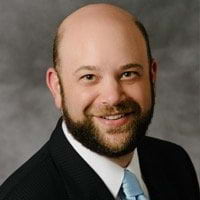What Option Is Best: Short Sale, Deed In Lieu Or Foreclosure?
When facing a mortgage foreclosure, or even the possibility of a mortgage foreclosure, borrowers should ask: “What options are best for me and my family?” At Yesner Law, we will take time to explore these options for free with a concerned homeowner, whether they are in foreclosure, on the path to foreclosure, or see the edge of the cliff in the distance.
We can use one of three (and a half) options to help the homeowner who wants to part with the house: Short Sale, Deed in Lieu of Foreclosure, or Foreclosure (and Bankruptcy as a “half-option.”)
A short sale is a process by which the borrower sells the home at a price that is fair market value, but is below the amount necessary to pay off all of the mortgages and liens recorded against the property. Although in some cases, the homeowner has to pay unpaid association assessments and property taxes, in most cases, the homeowner will bring no money to closing. Any closing costs are absorbed by the purchase price of the property, and any deficiency is waived by the lender. Note that credit unions never, in our experience, waive deficiency but lenders will waive deficiency a great majority of the time, creating potential income tax issues. However, the possible income tax consequences oftentimes are outweighed by the sale of the house, lifting that financial burden from the homeowner.
A deed in lieu of foreclosure, or DIL, is a solution where the homeowner voluntarily conveys the house back to the lender, in exchange for a waiver of the debt. The issue with a DIL is that before the bank takes back the property voluntarily, they want to ensure that the homeowner is unable to sell it at fair market value. Therefore, in most cases, before the lender will allow the DIL, the property must be listed with a licensed realtor, at fair market value or at the lender’s pre-determined price, for 90 days or more, depending on the lender, with no activity. The consequences of a DIL are the same as a short sale: the lender typically waives deficiency, which then requires the homeowner to do a tax analysis based on the “benefit” of the forgiven debt.
A foreclosure is an option the bank chooses because the borrower chooses to do nothing. For a homeowner to say “I’m going to choose to do a foreclosure” is really a statement by the homeowner that “I’m going to do nothing.” There are some instances where allowing a property to be foreclosed is a good option. Typically, however, it is an option of last resort because, while the consequences are mostly the same (waiver of deficiency) the impact to credit can be devastating.
Finally, bankruptcy may help in the decision making process but, under Florida law, the bankruptcy itself has no ability to convey title to the property. Sometimes the trustee will sell the house in bankruptcy (listen to the Yesner Law Podcast episode 16), otherwise, the homeowner has to sell the house either in a short sale, deed in lieu, or foreclosure as described in this article. Where a bankruptcy is a good option, and the trustee does not sell the house, we pair this solution with one of the other three – short sale, DIL or foreclosure.
For more information on short sales, Foreclosures, or deeds in lieu of foreclosure, please subscribe to the Yesner Law Podcast. Please also follow us on Facebook, Google+ or YouTube. We use these outlets, together with our blog to cover a variety of topics. If you prefer, please contact us to schedule a free initial consultation to discuss your options at 727-261-0224 or email me directly at shawn@yesnerlaw.com.
Shawn M. Yesner, Esq., is the founder of Yesner Law, P.L., a Tampa-based boutique real estate and consumer law firm that helps clients eliminate debt by providing options, so they can live the lifestyle of their dreams. We assist clients with Chapter 7 liquidation, Chapter 13 reorganization, bankruptcy, foreclosure defense, debt settlement, the sale and purchase of real property, landlord/tenant issues, short sales, loan modifications, and asset protection in Tampa, Westchase, Odessa, Oldsmar, Palm Harbor, Clearwater, Pinellas Park, Largo, St. Petersburg, and throughout the greater Tampa Bay area.




